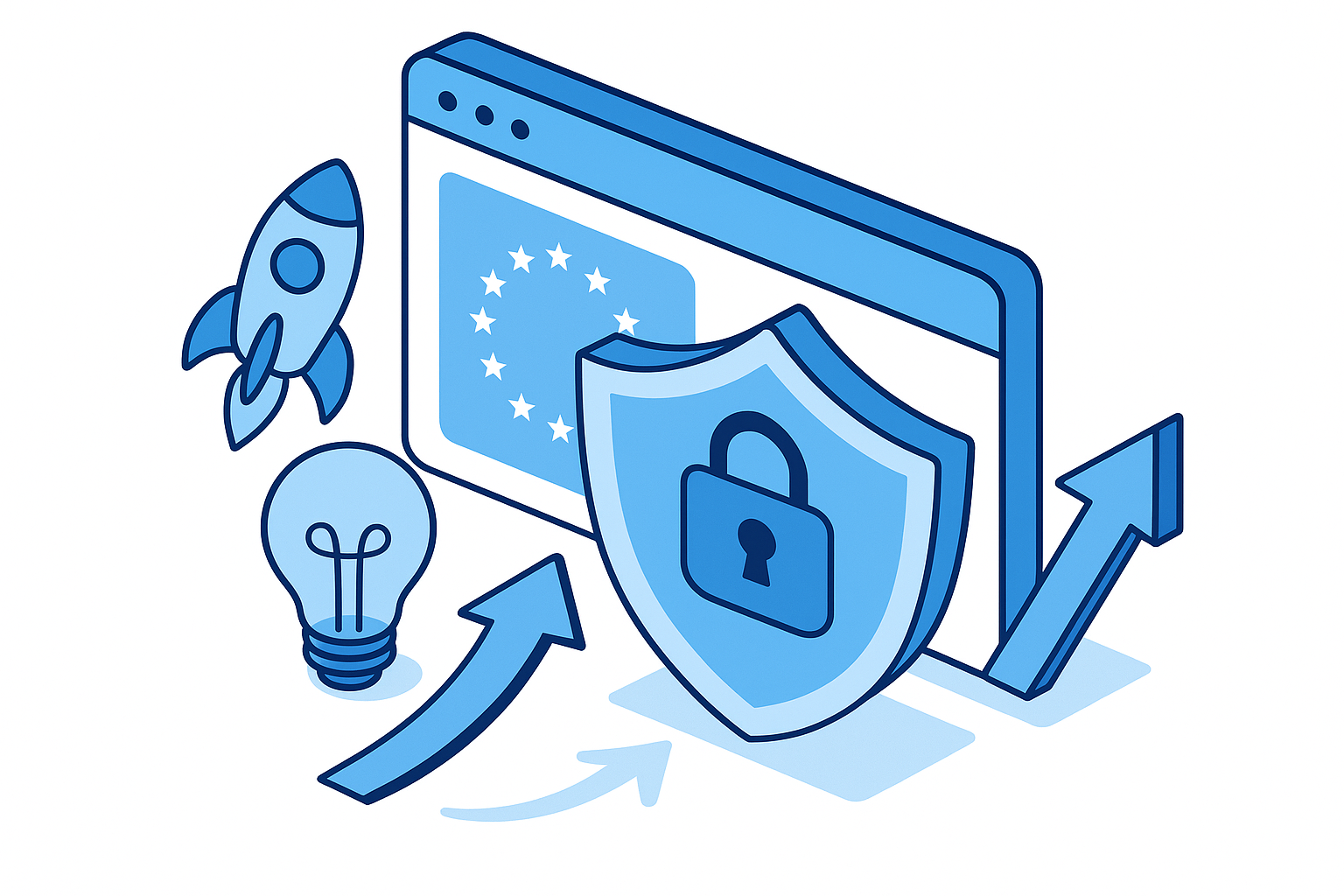GDPR for Startups: A 2025 Compliance Guide
Navigating the General Data Protection Regulation (GDPR) is no longer just a concern for tech giants. In 2025, startups of every size and sector must take GDPR compliance seriously—not just to avoid hefty fines, but to build trust and credibility in an increasingly privacy-conscious market.
Why Startups Should Care About GDPR
GDPR applies to any business processing personal data of EU citizens, regardless of the company's location. For startups, this means:
- You're subject to regulations from day one if you have EU customers
- Compliance is required even if you're based outside the EU
- Regulators are increasingly targeting SMEs and startups, not just large corporations
- Fines have increased to €30 million or 6% of global turnover
Key GDPR Principles for Startups
Successful compliance requires adherence to several core principles:
1. Lawfulness, Fairness, and Transparency
- Clearly communicate how and why you collect personal data
- Make privacy policies accessible and easy to understand
2. Purpose Limitation
- Only use data for specified, legitimate purposes
- Document the legal basis for each type of processing
3. Data Minimization
- Collect only what you truly need
- Audit your data collection regularly to eliminate unnecessary fields
4. Accuracy and Storage Limitation
- Keep data up to date and correct inaccuracies promptly
- Don't retain personal data longer than necessary
5. Integrity and Confidentiality
- Implement appropriate security measures
- Protect against unauthorized access and breaches
6. Accountability
- Be able to demonstrate compliance at all times
- Document your privacy practices and decisions
A Practical GDPR Compliance Checklist
For resource-constrained startups, here's how to approach GDPR compliance in 2025:
1. Data Mapping and Inventory
- Identify what personal data you collect, where it's stored, and how it flows
- Map all data touchpoints, from your website to third-party tools
- Use a privacy management platform to maintain an up-to-date data inventory
2. Establish Lawful Basis for Processing
- Document legal grounds for each type of data processing
- Understand the six lawful bases: consent, contract, legal obligation, legitimate interest, vital interest, and public task
- Avoid over-relying on consent, which can be complex to manage
- Step 1: Map your data flows and identify personal data
- Step 2: Determine and document your lawful basis for each processing activity
- Step 3: Create and publish a clear, comprehensive privacy policy
- Step 4: Implement proper consent and preference management
- Step 5: Set up procedures for handling data subject requests
3. Implement Consent Management
- Obtain explicit, informed consent where required
- Make it easy for users to withdraw consent at any time
- Keep detailed records of consent
- Deploy user-friendly consent mechanisms that don't disrupt experience
4. Data Protection Officer (DPO)
- Determine if your startup needs a dedicated DPO
- Consider external DPO services if you can't afford a full-time position
- Ensure they can effectively oversee compliance and conduct impact assessments
5. Data Security and Breach Management
- Use encryption, access controls, and regular security assessments
- Develop a breach response plan—in 2025, breaches must be reported within 48 hours
- Even potential incidents now require notification under updated regulations
6. Manage Data Subject Rights
- Create efficient processes for handling access, correction, deletion, and portability requests
- Automate where possible to ensure timely responses
- Train your team to recognize and properly route these requests
Common Startup Pitfalls in 2025
Avoid these increasingly costly mistakes:
- Ignoring international requirements - GDPR applies even if you're not based in the EU
- Using pre-checked consent boxes - Always make consent active and opt-in
- Neglecting processor agreements - Ensure your vendors and tools are compliant too
- Overlooking data subject rights - Be prepared to handle access and deletion requests promptly
- Resource constraints - Consider specialized privacy compliance platforms that scale with your business
- Complex data flows - Invest in proper data mapping to understand your exposure
- Evolving regulations - Stay informed about GDPR changes, especially regarding AI and enhanced data subject rights
Cost-Effective Compliance Solutions
Several approaches can help startups with GDPR compliance:
- Privacy compliance platforms that grow with your business
- Automated data mapping and inventory tools
- Consent management systems
- External DPO and privacy consulting services
- Privacy training for your team
Visible Privacy offers startups scalable privacy solutions that make compliance straightforward while building customer trust. Our platform helps you manage data inventories, implement consent mechanisms, and handle data subject requests—all essential components of GDPR compliance.
The Benefits Beyond Compliance
While avoiding fines is important, proper GDPR compliance offers additional advantages:
- Enhanced customer trust and loyalty
- Competitive differentiation in privacy-conscious markets
- Better data management and reduced storage costs
- Preparedness for other global privacy regulations
- Stronger security posture
Conclusion
GDPR compliance doesn't have to be overwhelming for startups. By focusing on the core principles and implementing practical measures, you can protect your users and your business while building a foundation for sustainable growth.
Remember that good privacy practices aren't just about avoiding fines—they build trust with your users and can become a competitive advantage. In 2025's privacy-focused landscape, startups that embrace compliance will find themselves better positioned for long-term success.
